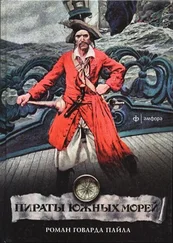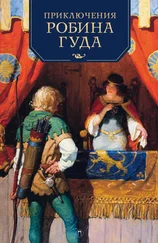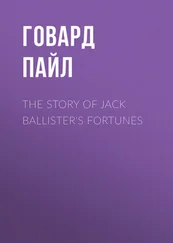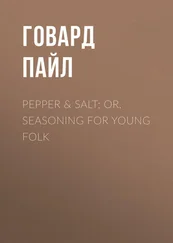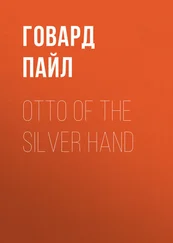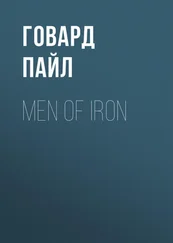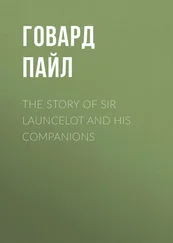Говард Пайл - Within the Capes
Здесь есть возможность читать онлайн «Говард Пайл - Within the Capes» — ознакомительный отрывок электронной книги совершенно бесплатно, а после прочтения отрывка купить полную версию. В некоторых случаях можно слушать аудио, скачать через торрент в формате fb2 и присутствует краткое содержание. Жанр: foreign_antique, foreign_prose, на английском языке. Описание произведения, (предисловие) а так же отзывы посетителей доступны на портале библиотеки ЛибКат.
- Название:Within the Capes
- Автор:
- Жанр:
- Год:неизвестен
- ISBN:нет данных
- Рейтинг книги:5 / 5. Голосов: 1
-
Избранное:Добавить в избранное
- Отзывы:
-
Ваша оценка:
- 100
- 1
- 2
- 3
- 4
- 5
Within the Capes: краткое содержание, описание и аннотация
Предлагаем к чтению аннотацию, описание, краткое содержание или предисловие (зависит от того, что написал сам автор книги «Within the Capes»). Если вы не нашли необходимую информацию о книге — напишите в комментариях, мы постараемся отыскать её.
Within the Capes — читать онлайн ознакомительный отрывок
Ниже представлен текст книги, разбитый по страницам. Система сохранения места последней прочитанной страницы, позволяет с удобством читать онлайн бесплатно книгу «Within the Capes», без необходимости каждый раз заново искать на чём Вы остановились. Поставьте закладку, и сможете в любой момент перейти на страницу, на которой закончили чтение.
Интервал:
Закладка:
“I wish thee’d never run away to sea,” said Tom’s mother.
“I wish so too,” said Tom; “but it can’t be helped now. I did run away to sea, and there’s an end of it.”
“Can’t thee find some way of making a living at home? Maybe Elihu Penrose would like thee better than he does if thee could stay at home, as other young men do.”
“How can I make a living at home?” said Tom, bitterly. “Can thee tell me of any way to make it?”
“No; but something might turn up.”
“I can’t wait for the chance of something turning up. I have seven hundred and fifty dollars to make in twelve months’ time.”
Neither of them spoke for a while. Tom sat beside his mother, and she was holding his hand and softly stroking it the while.
“Mother,” said Tom, at last.
“Well, son?”
“Does thee know what I’ve pretty well made up my mind to do?”
“What?”
“To go to Philadelphia on the stage to-morrow morning, and to take the first berth that I can get.”
“Oh, Thomas! thee wouldn’t go so soon, surely! What would Patty do?”
“Patty would have to bear it, mother. She’ll have to bear it, anyhow. It’ll be just as hard to leave to-morrow week as it will to-morrow. The sooner I leave the sooner I’ll be back, thee knows.”
All this was very reasonable, but, nevertheless, his heart failed him at the thought of leaving. “Of course,” he burst out, after a while, “of course, it’s as hard for me to go as it is for her to have me go.”
“I don’t know that, Thomas,” said his mother, in a trembling voice. “Thy life will be full of work and change. Patty will have nothing to do but to think of thee.”
“Well, all the same, its hard to leave her, and the knowledge that she will suffer don’t make it any the easier for me.”
He got up and began walking restlessly up and down the room. Presently he stopped in front of his mother.
“Yes, mother,” said he, “I’ll go on the stage to-morrow morning. There’s no use putting it off any longer, and I’d be a coward to do so.”
Then his mother put her handkerchief to her face, and the tears that she was keeping back came very freely.
The next morning at half-past seven o’clock Tom knocked at the door of Elihu Penrose’s house. The mill-house was about three-quarters of a mile from the turnpike, and as he had to meet the stage there about eight o’clock, he had only a few minutes in which to say farewell.
He walked straight into the dining-room. Patty was busy putting away the breakfast dishes, and Elihu sat at his old brass-handled desk, footing up his accounts. He looked up as Tom came in, and the color flew into Patty’s cheeks.
“Thee’s beginning thy courting early in the morning, Thomas,” said Elihu, dryly.
Tom vouchsafed no answer to this. He stood leaning against the door-frame, and his eyes were fixed upon Patty.
“I’m going to leave home this morning,” said he.
Neither of the three spoke for a moment or two. Tom stood looking at Patty, his hands clasped in front of him, feeling unutterably miserable. Elihu had arisen from his chair, and he and Patty were gazing at Tom, surprised at the suddenness of what he had told them. Then Elihu came forward and laid his hand on Tom’s shoulder.
“Thomas,” said he, “does thee mean that thee is going – ”
“I mean that I’m going to leave Eastcaster for a year,” said Tom.
“This is – this is very sudden, Thomas,” said he.
Tom nodded his head.
“Come, Thomas; I had no wish to be harsh with thee yesterday,” said the old man. “I don’t want to push thee to the wall. This is very sudden. Put off thy going for a week or two. Look here – even if thee don’t bring me the seven hundred and fifty dollars just at the end of the year, I won’t count it against thee.”
“It’s too late now,” said Tom. “My chest’s packed, and father’s going to put it on the stage for me. I’ll not be unmanly and put off the going, now that everything is fixed for it. If I’d have known how thee felt yesterday, I don’t deny that I might have stayed a little while longer. But it won’t do to stop now that I’ve started.”
All this he spoke without looking at Elihu. Elihu took his hand from Tom’s shoulder. He stood for a moment as though he were about to say something farther; then he slowly picked up his hat and left the room, and Tom and Patty were alone.
In about a quarter of an hour the old man came back again. Tom looked up at the clock. It was a quarter to eight, and he knew that the time was come for him to go. Patty and he had been sitting on the sofa, holding one another’s hand. They had been silent for some time, and they both arose without a word.
Tom stood looking long and earnestly at Patty. Her face was bowed upon her breast. “Patty, my darling,” whispered he, and then she looked up.
Her eyes were brimming with the tears that she had kept so bravely hidden until now, and then two bright drops ran slowly down her cheeks.
“Farewell, my darling,” murmured he, in a low, broken voice. He drew her to him, and their lips met in one long kiss. Then he turned, and ran out of the house. He did not say farewell to Elihu, for he could not have spoken the words, if he had tried to do so.
Ah, me! The searching pain of such a parting! Surely, the Good Father would never have put us on this world to live the life here, were it not that there is a world and a life to come wherein such partings shall never be. He hath given that the birds of the air and the beasts of the field shall not suffer dread of grief to come, and but little sorrow for things gone by. Why, then, should He give it to us, His goodliest creatures, to bear these things, if nothing of good or evil was to come of such suffering hereafter?
CHAPTER IV
THESE things happened in the spring of ’13, and the war with England was in full swing. We thought that we knew a great deal about the war at Eastcaster, but we really knew little or nothing of it.
The Philadelphia stage brought down the Ledger from that town three times a week, and Joseph Anderson, the teacher at the Friends’ school, would read it aloud at the “Black Horse” tavern (it was the “Crown and Angel” then) in the evening. A great many came to hear the news, and it was said that the tavern did a driving business at the time; for, of course, no one could come and sit there all evening and drink nothing.
The folks talked with great knowledge about the war; some of them so wisely that it was a pity that poor President Madison did not have the chance to hear them.
The truth of the matter was that Eastcaster was too far away from deep water to feel the full heat and excitement of the trouble.
The part that interested Tom the most was the news that came now and then of the great sea battles; that being the year that the noble old Constitution did her best fighting.
When Tom Granger came to Philadelphia, he found matters at a very different pass from what they were in Eastcaster, for there was talk just at that time of Commodore Beresford sailing up the river to bombard the town; so Tom found the streets full of people and everything in great fervent, as it had been for some time past.
Just outside of the town, the stage passed near to where two regiments of militia were encamped – one of them not far from Grey’s Ferry.
The next morning after Tom came to Philadelphia, he called at the office of old Mr. Nicholas Lovejoy, who was the owner of the ship in which he had last sailed. It was the Quaker City , and Tom had had the berth of third mate aboard her, which was a higher grade than he had ever held up to that time.
Mr. Lovejoy, beside being the owner of two good ships himself, one of which, Tom had reason to think, was then lying at the docks, had a great deal of influence with other merchants and ship owners. He had always been very friendly to Tom, and had said pleasant things of him and to him more than once, so Tom had great hopes of getting a berth through him without much loss of time.
Читать дальшеИнтервал:
Закладка:
Похожие книги на «Within the Capes»
Представляем Вашему вниманию похожие книги на «Within the Capes» списком для выбора. Мы отобрали схожую по названию и смыслу литературу в надежде предоставить читателям больше вариантов отыскать новые, интересные, ещё непрочитанные произведения.
Обсуждение, отзывы о книге «Within the Capes» и просто собственные мнения читателей. Оставьте ваши комментарии, напишите, что Вы думаете о произведении, его смысле или главных героях. Укажите что конкретно понравилось, а что нет, и почему Вы так считаете.

